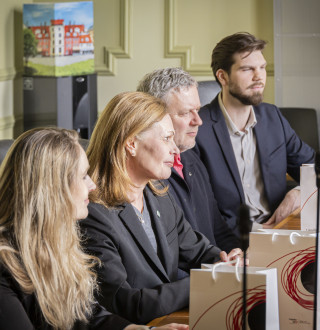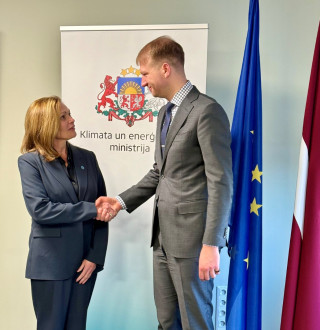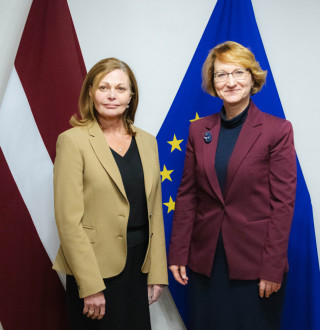On 6 February, a seminar of the ESPON TERRES Territorialising Resilience project “Territorialising Resilience: Transforming Europe for an Age of Crisis” took place in Daugavpils, in the Rothko Museum. In the project starting phases participants were introduced with the project’s objectives and the concept of territorial resilience. It gave project partners a holistic insight into the preparedness to deal with potential regional crisis in Latgale.
The aim of the project is to develop a framework for territorial resilience – the capacity and will to protect a territory against threats and risks and to ensure its continuance – covering today’s challenges and technological opportunities that can be applied at the European Union level. Strong and resilient society is built on the capacity of individuals for continuous improvement as well as social and institutional innovation, culture and shared democratic values. Territorial resilience goes beyond the capacity to prevent, cope with and adapt to external shocks. It is also the capacity to change and preparedness to go an extra mile to face and strategize overcoming of regional challenges. The project is implemented by the Nordic research institution Nordregio that sees the potential of improving the understanding and to unlocking the opportunities implicit in the concept of territorial resilience, overcoming policy and research siloes through fruitful dialogue among researchers (the scientific level), policy-makers (the normative level) and practitioners (the operational level).
To achieve the project’s objectives, case studies will be carried out in six European regions: in Catalonia, Hungary, Italy, Latvia, Teruel in Spain and Sweden. The specific activities in the ESPON TERRES project are as follows:
- Study European policies and previous ESPON projects.
- Collect regional-level data related to territorial resilience.
- Develop an interactive mapping tool and ad-hoc communication materials.
- Conduct an in-depth analysis of various European regions/cities on their efforts to achieve territorial resilience.
- Develop policy recommendations on how to better embed the concept of ‘territorial resilience’ into territorial policymaking at all scales at the EU and national policy levels.
Twenty-two researchers, public sector and civil society representatives from different fields: culture, business, security and civil society participated in the workshop. The active involvement of the participants provided invaluable information for the study on Latgale. The participants actively engaged in practical work and discussions on the challenges in the eastern part of Latvia. The groups discussed and mapped out risks and brainstormed solutions for strengthening territorial resilience and strategizing against possible future crises.
The project is aiming to enhance Europe's ability to face crises by developing a comprehensive framework for resilience across EU regions, focusing on continuous improvement, social innovation, and embracing technological opportunities. The project is coordinated by the Hungarian research center HETFA Csoport and co-funded by the EU Interreg programme, project is coordinated by the Hungarian independent research centre Hétfa, co-funded by the EU Interreg programme.











